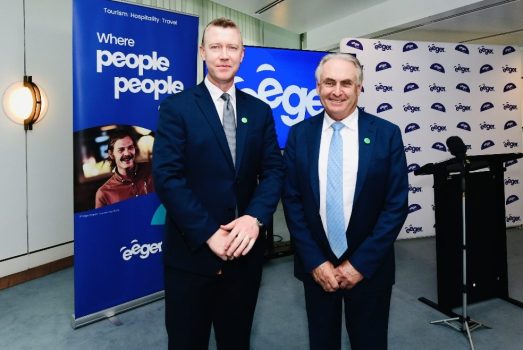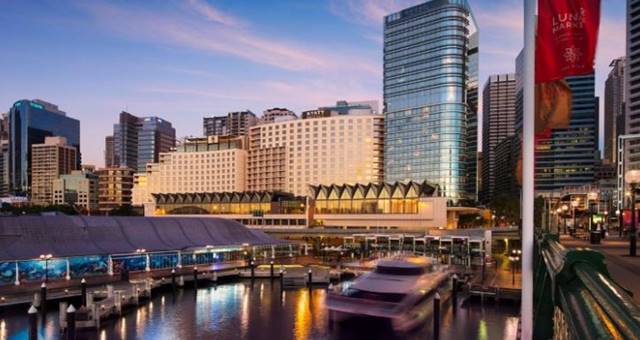
Tourism and hospitality needs to focus on selling itself as a careers sector rather than an industry comprising temporary workers in part-time jobs if it is to withstand the challenges posed by a softening labour market, say industry insiders.
James Goodwin, chief executive of Accommodation Australia, tells Spice there is plenty to look forward to in the year ahead, but many obstacles are expected to impact the tourism, accommodation, hospitality and events sectors in 2025 and 2026.
Attracting talent
A big challenge for these industries continues to be attracting and retaining talent.
Goodwin says many workers tend to join the hospitality, tourism and events sectors towards the end of high school or while completing a university degree, but don’t view it as a long-term career option.
“There are some very important, influential and well-paid careers that you can have in hospitality and tourism, but there’s not an obvious route to get there, such as an apprenticeship or vocational education,” he says, adding the sector is working on addressing the key challenges of workforce development, skills shortages and career growth.
Melissa Brown, chief executive officer of the Australian Business Events Association (ABEA) agrees.
“For small businesses, getting skilled talent is a challenge,” she says.
“There’s definitely a need to do better promotion for careers and jobs in our industry so people know they exist. And then once they’re progressing through the industry, making sure they are future fit to be senior leaders to take over from the people in senior positions at the moment.”
Brown also stresses there is still an overarching need for more talent in the industry to make up for staff shortages endured during the COVID-19 pandemic – predominantly in middle management.

“We are at a real turning point where there are a lot of people who have been in the industry for a long time with a lot of experience who are ready to move on or sell their businesses,” she says.
“And there’s not the depth of talent and experience there would have been pre-COVID-19 to take over those roles and to buy those businesses.
“There is a need to train up people already in the industry to get those leadership and middle-management-related skills.”
International tourism still not back
A big challenge for the industry remains international tourism, with visitor numbers still not back to what they were pre-COVID-19, and Chinese tourist numbers falling behind visitation from other countries.
New Zealand is now Australia’s top market for international tourism.
“There’s a bit of a shift, but we’ve got some real growth markets such as India and Vietnam so that is really great to see,” says Goodwin.
“In a sense, we’re diversifying, but that can create some new challenges where we have to accommodate and welcome people we may not have seen in those sorts of numbers before. How they interact with tourism and hospitality will be different.”

Cost-of-living pressures are expected to also continue through 2025, affecting local tourism.
“I know from the accommodation side of things, occupancy rates are good but not great,” says Goodwin.
“What we’re finding is that people are still prioritising having that holiday, but it might be they are waiting for a special deal or it might be that rather than seven nights, they’re staying four or five nights.
“It’s good to see that despite rising operating costs, hotel room rates in capital cities have not increased across the board as a percentage.”
A new skills portal
Both Brown and Goodwin have been part of the committee behind a new work-and-careers portal aimed at addressing skills shortages in the industry.
The Eeger platform has rolled out in 2025 and functions as a one-stop resource hub that fosters collaboration between businesses, educators and service providers.
The portal will offer comprehensive access to job vacancies, career insights and training programs; tools for matching skills to career paths; and opportunities and resources to upskill.
“It’s really exciting to unveil what is the first of its kind careers-and-skills platform that’s specifically designed for hospitality, tourism and travel,” says Goodwin, adding Eeger is more than just a jobs board.
“What it’s aiming to do is better link up employers with employees and potential employees, not just for jobs but in terms of how do they upskill, how do they prepare for that next role, and how do they understand the careers that exist in this sector.
“What this is aiming to do is highlight and showcase different career paths.”
Brown hopes it will get people excited about the events and tourism industries.
“Hopefully, with that sort of content, the portal will entice them to see that there is a career – it’s not something that you fall into or just do when you’re at uni.”
Nurturing future leaders
Brown says Gen Z are now the biggest attendees of business events nationally, and there’s work to be done in nurturing workers of the same age to stay in the industry so they can age with this cohort.
“We need to make sure that what we are producing in business events is relevant for them, and therefore they need to be part of organising and running events and being a lot more involved in them,” she says.
“Whether it’s through education programs, shadowing managers or formal training, it’s making sure they get the training and experience they need.
“It’s important we bring them through and keep them in the industry and don’t let them get bored and wander off somewhere else.
“They want to learn while they’re on the job, but also do other shorter courses and microskilling. There’s a lot of opportunity there.”
Photo at top: iStock/Andrii Yalanskyi.


